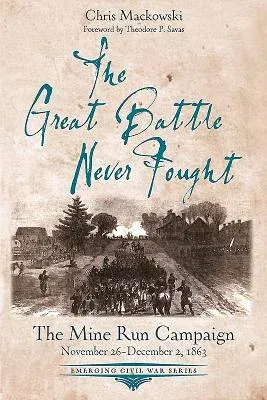The stakes for George Gordon Meade could not have been higher.
After his stunning victory at Gettysburg in July of 1863, the Union
commander spent the following months trying to bring the Army of
Northern Virginia to battle once more and finish the job. The
Confederate army, robbed of much of its offensive strength, nevertheless
parried Meade's moves time after time. Although the armies remained in
constant contact during those long months of cavalry clashes, quick
maneuvers, and sudden skirmishes, Lee continued to frustrate Meade's
efforts.
Meanwhile, in Washington, D.C., Meade's political enemies launched an
all-out assault against his reputation and generalship. Even the very
credibility of his victory at Gettysburg came under assault. Pressure
mounted for the army commander to score a decisive victory and prove
himself once more.
Smaller victories, like those at Bristoe Station and Rappahannock
Station, did little to quell the growing clamor--particularly because
out west, in Chattanooga, another Union general, Ulysses S. Grant, was
once again reversing Federal misfortunes. Meade needed a comparable
victory in the east.
And so, on Thanksgiving Day, 1863, the Army of the Potomac rumbled into
motion once more, intent on trying again to bring about the great battle
that would end the war.
The Great Battle Never Fought: The Mine Run Campaign, November
26-December 2 1863 recounts the final chapter of the forgotten fall of
1863--when George Gordon Meade made one final attempt to save the Union
and, in doing so, save himself.

